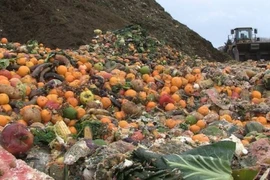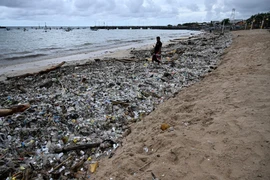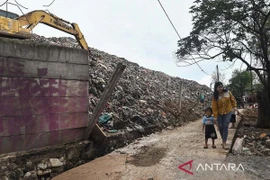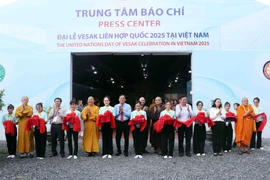Jakarta (VNA) – Indonesia’s Ministry of Environment called on local governments to vigorously promote the Waste Aware Lifestyle Movement as part of the efforts to transform the waste management paradigm in the country.
Novrizal Tahar, director of waste management at the ministry, emphasised the need to raise collective awareness about sorting household waste to mitigate associated risks. The movement encourages citizens to actively sort waste to protect the environment.
He noted that separating organic and inorganic waste at home not only reduces the volume of waste sent to landfills but also supports a circular economy by providing clean, recyclable raw materials.
To ensure the programme's success, the ministry has engaged with other government ministries, agencies, and regional leaders to enhance public awareness. Furthermore, regional authorities are implementing large-scale awareness campaigns to help communities understand the risks posed by unmanaged waste.
In addition to sorting, the initiative also advocates for waste prevention measures, such as eliminating single-use packaging and reducing food waste.
According to data from Indonesia’s National Waste Management Information System (SIPSN), food waste accounted for the largest share, nearly 40% of the 40.1 million tonnes of waste generated in 2023.
Meanwhile, the share of plastic waste has risen over the past 20 years, becoming the second most prevalent type of waste after food. Plastic waste has increased from 10–11% in 2000 to 19.15% in 2023 due to population growth and the widespread use of single-use plastic products./.
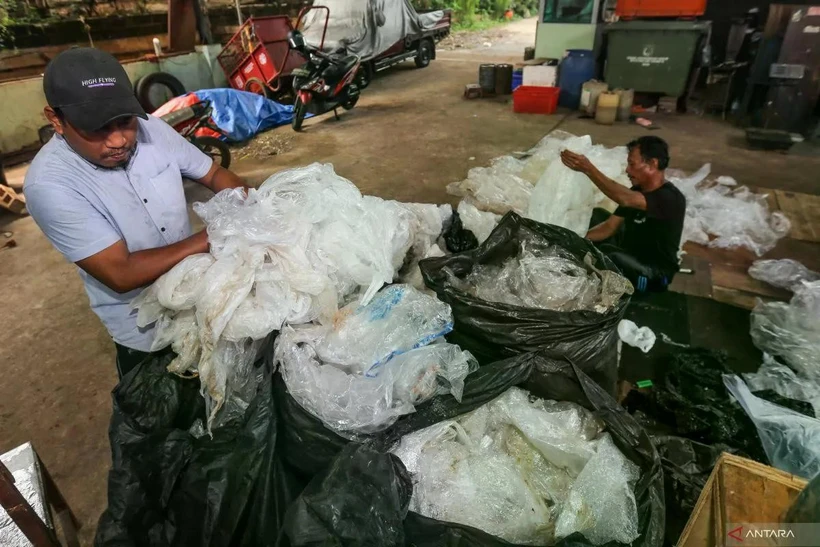
See more
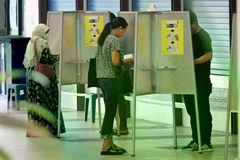
Singaporean voters enthusiastic on election day
Voting took place at 1,240 polling stations nationwide, operating from 8 am to 8 pm. local time. Special provisions were made for elderly, disabled, and pregnant voters.
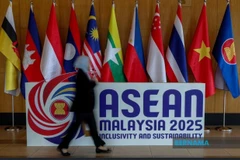
ASEAN to look into nuclear energy potential as clean, stable energy source
ASEAN countries are examining the prospects of nuclear energy as a clean and stable source of electricity, with the potential to replace fossil fuel – based generation sources and support the regional energy transition agenda.
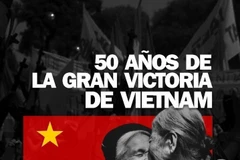
Latin American communist parties call Vietnam’s April 30 victory a beacon of global liberation
Communist parties across Latin America have affirmed the global significance of Vietnam’s April 30, 1975 victory that led to the liberation of the South and national reunification.
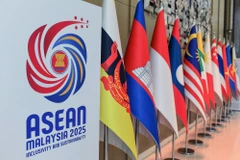
Malaysia plans security training, simulation for 46th ASEAN Summit
The 46th ASEAN Summit is expected to bring together leaders from all 10 ASEAN member states to discuss regional issues, foster economic cooperation and champion the principles of inclusiveness and sustainability.
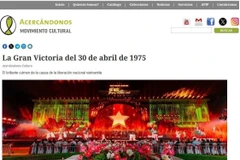
Vietnam’s 50-year reunification celebration garners Argentine press’s attention
The April 30, 1975 triumph stands as one of the most remarkable milestones in the Vietnamese people’s history of national building and defence.
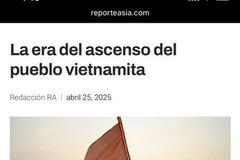
Latin American media analyses Vietnam’s new era of national rise
The article, entitled "La era del ascenso del pueblo vietnamita" (The era of Vietnam’s rise), highlighted the transformative influence of the August Revolution in 1945, which ushered in a new chapter in Vietnamese history with the people taking charge of their destiny for the first time.
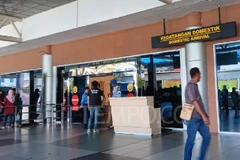
Three more Indonesian airports meet international standards
Previously, in April 2024, Indonesia issued a decree to reduce the number of international airports from 34 to 17. This move aimed to optimise aviation operations, focus resources on airports with high international traffic and improve service quality.
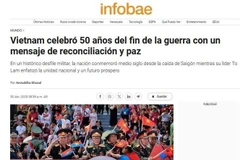
Argentinean media highlights Vietnam’s message of reconciliation, peace
The article cited Vietnamese Party General Secretary To Lam’s speech delivered at the event, as saying: “With the policy of closing the past, respecting differences, looking towards the future, our entire Party, people and army together strive to build a peaceful, unified, happy, prosperous and developed Vietnam.”

Indonesian paper spotlights Vietnam’s development journey
Dramatic changes have taken place in Vietnam since economic reforms were enacted in 1986. The country’s economic development through the ‘Doi Moi’ (Renewal) received praise from the world and showed that the country entered a period of integration, a turning point of growth after 1986.
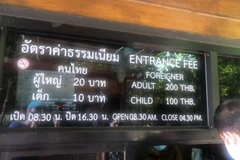
Thailand pledges to address foreign tourists’ complaints
Sorawong said that every case involving foreign tourists will now be reported directly from the police to him. Tourists can submit requests for assistance via the Thailand Tourist Police application, and a tourist assistance centre has been established in every province to support visitors.
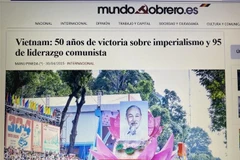
Communist Party of Spain’s periodical highlights Vietnam’s historic milestones, achievements
The April 30, 1975 victory was noted as a defining moment that ended decades of struggle against foreign aggression and oppression. The reunification of Vietnam not only reshaped the geopolitical landscape of Southeast Asia but also inspired anti-colonial movements worldwide. However, the article acknowledged the immense cost of war: millions of lives lost, widespread destruction from chemical defoliants like Agent Orange, and an economy fractured by decades of conflict.

Bank of Thailand cuts interest rate to two-year low
The Bank of Thailand's Monetary Policy Committee voted 5-2 to reduce the one-day repurchase rate by 25 basis points to 1.75%, the lowest level in two years.
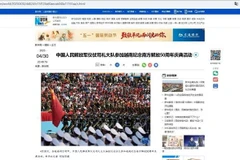
Chinese state media spotlights Vietnam’s grand celebration of reunification anniversary
In its report, Xinhua quoted General Secretary of the Communist Party of Vietnam Central Committee To Lam as saying that under the Party's leadership, the Vietnamese people and armed forces have united to rebuild, reconstruct, and develop the country.
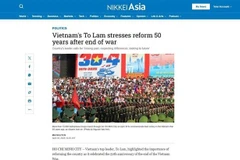
Nikkei Asia highlights Vietnamese people’s pride at reunification celebration
The article reported Lam’s calling on Vietnamese people to build upon the spirit of the great victory in the spring of 1975, and the values and triumphs over the past 40 years under 'Doi Moi' (renewal) to reap greater triumphs and forge new miracles in the new era.
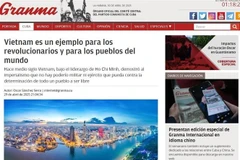
Vietnam in the hearts of Cuban friends
The daily Juventud Rebelde (Rebel Youth) - a newspaper of the Young Communist League - described Vietnam’s victory on April 30, 1975 as a “brilliant epic” and highlighted “President Ho Chi Minh affirmed that ‘Vietnam is one, the Vietnamese people are one’ – and that day, that aspiration came true.”

Thailand highlights ‘Khao Mak’ as symbol of wellness and soft power
This is the first time Thailand has dedicated an initiative to elevate Khao Mak as a global symbol of wellness and cultural identity.
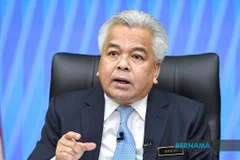
ASEAN officials discuss Community Vision 2045, Timor Leste membership, nuclear free zone
As a regional bloc that maintains collaboration on shared interests, all discussions at the ASEAN SOM meetings were centred on ensuring comprehensive and forward-looking approaches for a more prosperous, peaceful, and secure ASEAN region.
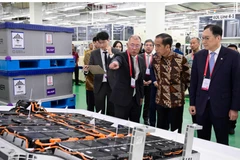
RoK firms pledge nearly 2 billion USD in new investments in Indonesia
The planned increase is equal to more than 10% of the 15.4 billion USD that Korean firms had already invested in Indonesia, said Airlangga.

Thailand, RoK boost trade ties at business forum
A Thai official has called for stronger economic collaboration between Thailand and the Republic of Korea while addressing a bilateral business forum in Seoul.
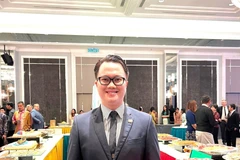
National reunification celebration helps raise Vietnam’s int'l standing: Malaysian researcher
The military parade marking the 50th anniversary of the liberation of the South and national reunification not only showcased Vietnam’s national defence capabilities but also delivered a powerful message to the international community: no external force can divide Vietnam through military means or economic pressure.
